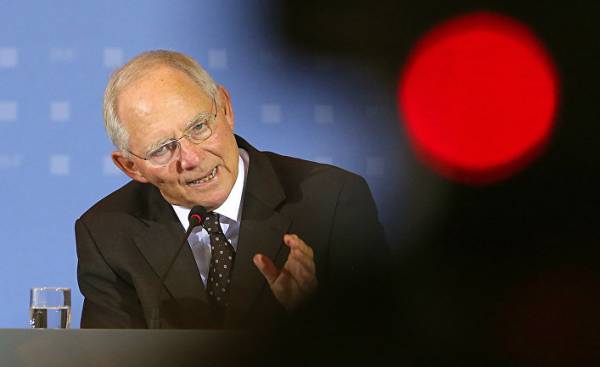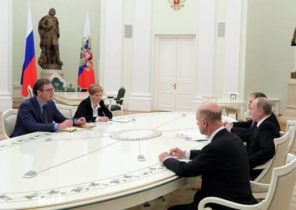
Occupying this year’s chair of the G20, Germany has placed among the priorities of stimulating private investment in Africa. On 12 and 13 June, Berlin is hosting a major conference that aims to bring the work forward on this initiative, called the Compact With Africa. German Finance Minister Wolfgang Schaeuble (Wolfgang Schäuble) explains the newspaper le Monde, the essence of this strategy that does not involve financial assistance, and aimed at attracting investors.
Le Monde: Why the partnership with Africa should be a priority of the G20?
Wolfgang schäuble: In recent years, we felt, was of great importance related to the economic development of geopolitical risks. First of all it concerns Africa. The continent is of great importance for the world economy in connection with its potential, and created by them risks. This initiative receives a highly positive response from African countries. It is long-term and will remain in the program of the G20, as Argentina, which will take the chair behind us, pledged to continue it.
— What exactly is it?
— The project does not envisage the formation of a new financial instrument for Africa. Its purpose is to promote private investment in the continent. On the one hand, you need to make a list of the development needs and assist in identifying useful projects. On the other hand, should create conditions for the formation of beneficial to the business regulatory and legal environment. It is a pre-condition for any private investment, but African States should do to achieve this in their handsets. Everything worked out in close cooperation with the African countries and the world Bank, the African development Bank and the International monetary Fund. Everything happens on a voluntary basis, we are not imposing anything. This is very important, because many still remember the colonial era.
Some NGOs report critically about this too abstract, in their opinion, the initiative does not provide for the allocation of any funds…
— The G20 — not the structure that deals with the allocation of financial assistance. For this, there are other channels like cooperation and public development aid. As I have said, the G20 strategy aimed at private investment. Of course, Africa needs public funds, particularly for infrastructure development. Anyway, a lot can change and with the help of private investment.
— If France plays a significant role in this initiative?
Yes, she plays a very active role. I must say that all our European partners widely support this project. We are also working with China, India, Indonesia and South Africa, which takes on the role of a mediator. Africa should be for the rest of the world a space of cooperation, not rivalry.
— How do you select countries?
They had to apply. The program is open to all, anyone not forced to do anything. It now involves seven countries: Morocco, Tunisia, Rwanda, Senegal, côte d’ivoire, Ghana and Ethiopia. About to follow their example, thinking three more States.
Not bad if that the first participating countries are among the richest in Africa?
The first African member countries needs to be successful. If they are able to achieve concrete results in terms of development, it will set a good example will cause others to want to go the same way. We thought about how it might look the first group of countries, which have the greatest chances of success in this initiative. Anyway, doors are open to all, and we celebrate in Africa growing interest in investment partnership. Africa does not play passive and active role.
— What is the reason for the growing interest in the continent, in relations which your country has no ancient traditions?
— Africa — neighbouring continent. Thus, it raises the issues that concern the whole of Europe, not just Germany. We fail to create the conditions for the stabilization of Africa, if the number of problems will continue to grow. The rest of the world particularly Europe will have to deal with the consequences. The immigration crisis opened the eyes of Germany. We need to reject inaction and accept our share of responsibility in an increasingly interconnected world. Just today we are stronger than other continents in political and economic terms, we must offer our help.
— Whether it is to open up new markets for German enterprises?
— The development of the continent can benefit them in that case, if it is a guarantee of stability. This is one side of globalization: it is not a zero-sum game, and can be useful for everyone. This applies to Africa. In addition, we Europeans must be ready to ensure greater openness of our markets to African products.







